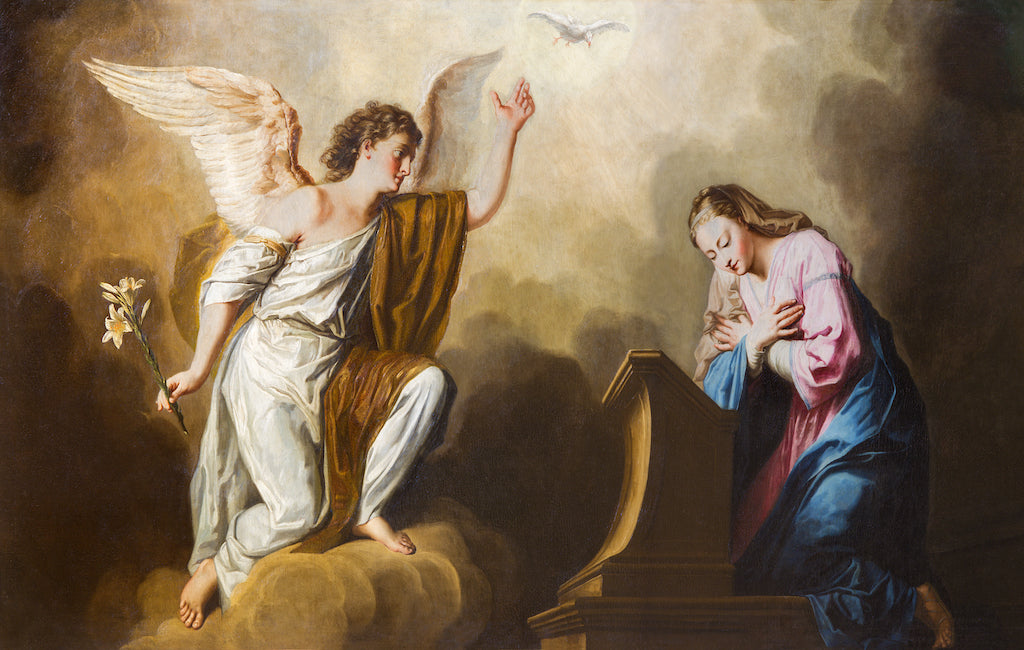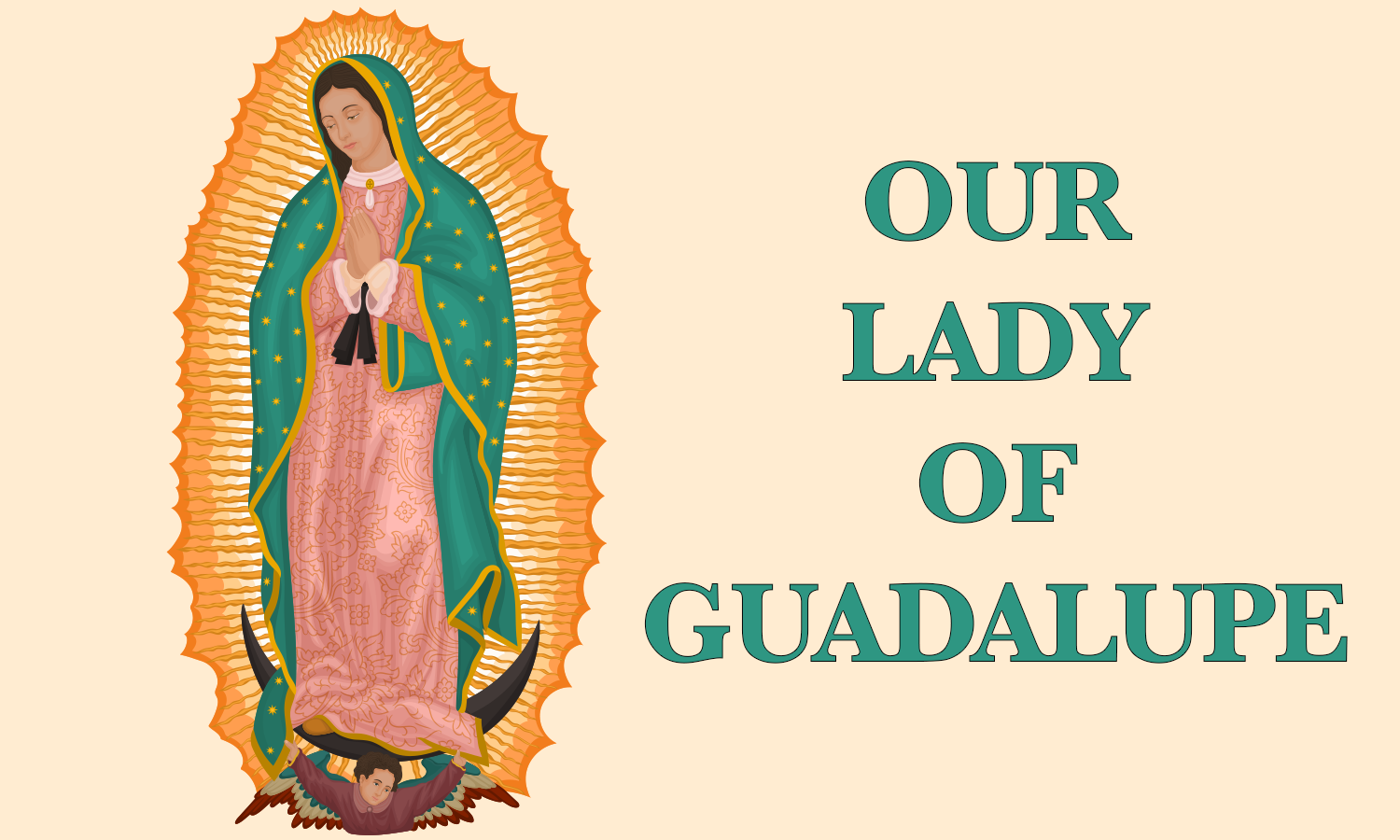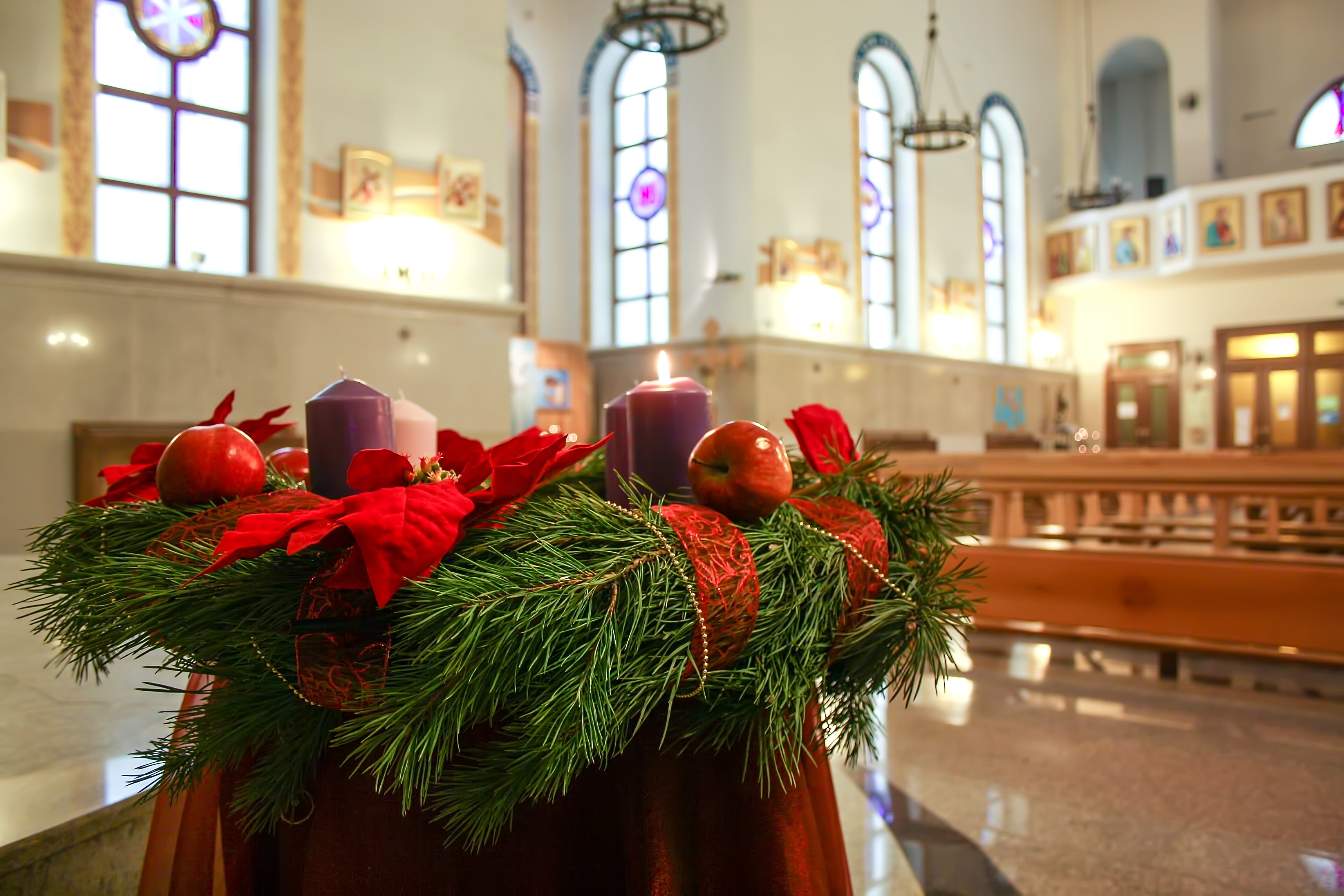
By Anne Metz
When we read the story of the Annunciation and Mary’s fiat (her yes) to God, we already know how the story turns out.
She becomes the Mother of God. She marries Joseph and he protects her. She watches her son tortured and crucified. She witnesses his miraculous Resurrection. She is in the upper room with the Apostles and is filled with the Holy Spirit and finally she is assumed into Heaven.
It’s a pretty spectacular life, that is, once you know the whole story.
But imagine yourself in that room with Mary when the angel Gabriel appears to her. Imagine you don’t know anything about her story or what happens next. Picture yourself there, with Mary, a young woman, not a person of any real significance, no wealth, no influence, no power. Gabriel appears in front of Mary and tells her, “Be not afraid.”
Would that be enough for you or I to not be afraid? Was it enough for Mary?
Gabriel goes on to tell her the plan that God has for her life:
You will become pregnant and give birth to a son, and you will name him Jesus. He will be great and will be called the Son of the Most High God. The Lord God will make him a king, as his ancestor David was, and he will be the king of the descendants of Jacob forever; his kingdom will never end! (Luke 1:31-33)
Mary, a devout Jew, must have known that a Messiah was promised, but I would wager that it never occurred to her that she would be such an integral part of God’s plan, bringing him into the world.
From the Gospel of Luke, we know that Mary is confused and “deeply troubled.” She doesn’t even understand how this can be possible since she is a virgin. But she has trust in God, so much faith, that she gives her fiat: ``I am the Lord's servant,” said Mary; “may it happen to me as you have said.” (Luke 1:38)
Mary said yes to God, to this impossible plan without knowing how the story would play out. This raises two questions:
How can we discover God’s plan for our lives?
How do we find the courage, trust, and faith to say yes to God?
Mary had the advantage of the angel telling her what would happen, but not how it would all play out. Would it be easier for us if we had an angel telling us what God wants from our lives? Probably. Will that happen for us? Probably not.
Instead we need to listen to the nudges from the Holy Spirit - the whispers as my friends call them. First, let's open ourselves up to His graces by attending mass, receiving the sacraments, and spending time in prayer. We can reduce the noise in our lives by putting away our phones, turning off the radio in the car, and just allow silence around us.
Then listen. If there’s a person on your mind, pray for them, send them a card, or reach out to them. When you feel a prompting to go somewhere, to the chapel, or to a dinner you felt like skipping, go. Maybe God wants you there to comfort a person or to gather with people who might give His comfort to you.
How do we say yes without knowing what’s in store? We need to take a leap, like Mary. We don’t know the end of our story, but we know the end of hers - a story that included much suffering, but ended in the salvation of the world. Mary can be our example of not only how to trust in God, but why we should trust in God. We know from her story that God has goodness planned for us as well.
I alone know the plans I have for you, plans to bring you prosperity and not disaster, plans to bring about the future you hope for. Jeremiah 29:11
When she’s not writing about faith, Anne Metz works for Growing Catholics, whose mission is to bring Scripture to all, especially tweens and teens.




